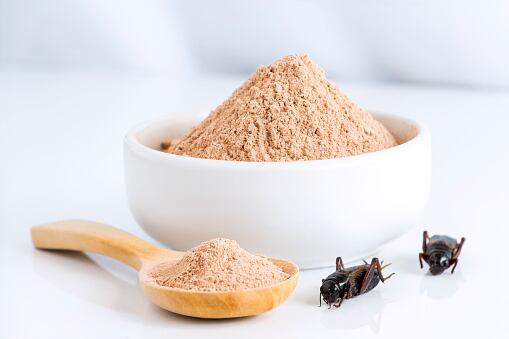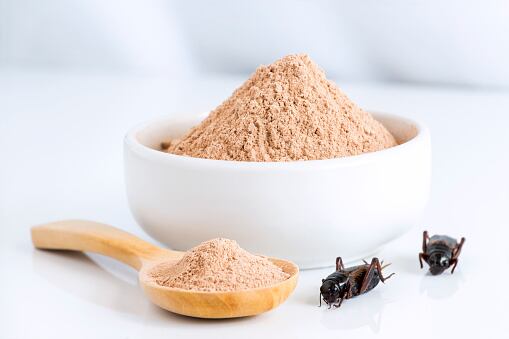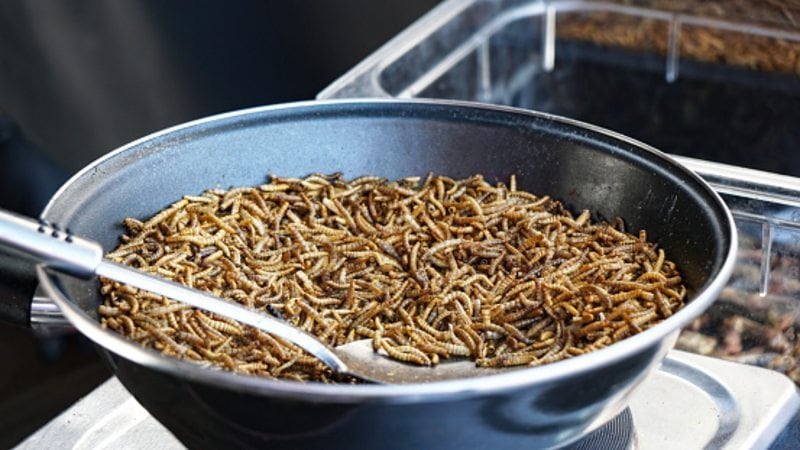The global edible insect industry is expected to increase in value to hit over US$1bn by 2023, with over 2,100 insect species eaten as food in hundreds of countries worldwide. Western countries such as the United States and Europe are leading this in terms of value, but within the Asia Pacific region, research analysts still predict this market to hit US$270 million by 2024
One of the region’s edible insect market leaders, especially in terms of industry organization, is undoubtedly South Korea, which has a number of legislations and frameworks already in place governing the development of the sector.
The East Asian nation recently also announced its ‘Third Comprehensive Plan For Nurturing The Insects and Sericulture Industry’.
“The objective of this plan is to foster the fields of insects and sericulture (silkworms) into high-tech industries as these markets are expected to show significant growth over the next several years,” said South Korean Ministry of Agriculture, Food and Rural Affairs Kim Hyeon-su.
“In South Korea, the number of edible insects approved as food or food ingredients locally has increased rapidly from just three species in 2016 to nine species in 2020. Approved edible insects currently include Grasshoppers, Silkworm Pupae, Mealworm beetle, Rhinoceros beetle larvae, Two-spotted Cricket, and so on.
“14 types of insects including black stag beetles and king crickets have also been designated as ‘livestock animals’ by law, and recognised as such by farmers and the industry. We have also established industry standards such as the Edible Insect breeding Standards and also Insect Resource Centres to offer assistance to farmers.”
As a result of the government’s investment, the number of farmers and food firms involved in the insect industry have increased a whopping 280% between 2015 (908) and 2019 (2,535) according to MAFRA numbers whereas the local insect industry value has risen 250% from KRW16.2bn (US$14.3mn) to KRW40.5bn (US$35mn) in the same timeframe.
“The Third Comprehensive Plan will look at areas such as developing insect protein which is eco-friendly and higher in protein compared to existing sources such as soy and meat to contribute to solving future food and environmental issues,” said Kim.
“It will also look at the development of various health functional foods by researching the functional and active ingredients to be found within insects, in response to the growing need for such functional foods.”
Australia
Miles away in Australia, the government is also backing efforts to grow the local edible insect industry as a protein source, expected to grow into a A$10mn (US$7.7mn) per annum industry over the next five years.
Similar to South Korea, the government is pitching insect protein to consumers as a ‘nutritious, sustainable and ethical’ source of alternative protein, where Australian national science agency CSIRO and the Australian Department of Foreign Affairs and Trade (DFAT) have co-funded the development of a national roadmap dubbed Edible insects: A roadmap for the strategic growth of an emerging Australian industry.
“Australia has a high diversity of native insects. Working with First Nations (indigenous) enterprises, many species have the potential to be sustainably harvested or grown in low impact farms, to be turned into new and delicious Australian foods,” said CSIRO entomologist and report co-author, Dr Bryan Lessard.
“Commercial insect farming is considered to have a low environmental footprint, requiring minimal feed, water, energy, and land resources – factors of importance to the modern health and ethically-conscious consumer.”
The report aims to lay out the framework of the current state of the industry and promote growth, but also states that ‘few businesses have yet to reach commercial scale’ and ‘Australian consumer acceptance is currently low’ when it comes to insect consumption.
“Most Western cultures have developed an aversion for insects, perpetuated by stereotypes of insects being dirty, pests, dangerous, only eaten in times of desperation or having an inherent “yuk” factor,” said the report authors.
“[However], local indigenous groups having traditionally consumed over 60 types of native insect species, [so it is important to] co-develop the industry with these groups, and link these initiatives with Western science to strengthen chances of success.”
South East Asia
Over in South East Asia, in several countries such as Myanmar and Thailand insects have traditionally been consumed as foods but not as a staple and usually fried and sold whole at roadside stalls – these traditional formats are not generally associated with the newer edible insect movement, which focuses on insects as a source of alternative protein.
For instance, Thailand’s CP Foods recently entered a collaboration with the local Chiang Mai University to develop black soldier fly protein as a food and feed source.
According to the firm’s Senior Vice President Dr Pairat Srichana, the firm also sees the commercialisation of insect-based protein as a sustainable alternative food source which offers ‘great opportunities for circular economy, as insects can effectively help to recycle bio-waste’.
“We believe that the black soldier fly is [one of the most] sustainable choices for alternative protein and fat sources, he said.
“[As such], we hope to make a traceable and value-added insect protein [via this partnership with Chiang Mai University which] will pave the way for a sustainable and profitable insect industry in Thailand.”
Vietnam also recently made strides in the edible insect industry by becoming only the fifth country ever (behind Canada, Switzerland, South Korea and Thailand) to receive authorisation to export insect-based foods to the European Union (EU).
“Vietnam has provided sufficient evidence and guarantees to the European Commission to be included in the list of third countries or regions thereof authorised for the entry of consignments of insects into the EU,” said the EU when officially issuing the authorisation earlier this year.
Considering that the EU is one of the bigger markets for insect-based foods at the moment, such an achievement is expected to provide a major boost for the local sector.
Modernising a traditional industry
General industry opinion and the newer edible insect movement also tend towards a ‘modernisation’ of the insect industry, or converting this traditional food source into more palatable, acceptable formats for the modern consumer which are less jarring than a whole insect.
Even Vietnam which has a long history of insect consumption has also made this move to modernisation in recent years, with firms such as CricketOne having developed more modern versions of insect-based products such as cricket-based burger patties and eyeing Japan as a major export market.
“Eating insects is part of the culture in many Asian countries – [but] there has been a shortage of food innovations here to make insect food mainstream, this only started getting more common the last few years in Asia,” CricketOne co-founder Nam Dang said.
Some other players in the South East Asian region such as Malaysia’s Ento are also focusing on using insect-based protein to make burger patties. Ento CEO Kevin Wu also told us how consumers such as those in Malaysia are less accepting of whole-insect snacks or products, and a ‘proteinisation’ strategy – using insect protein in products like granola or cookies – is necessary to gain consumer acceptance.
“When we first launched the roasted snack products, we found that maybe only three out of every 10 people were willing to try these, much less buy them [so we] listened to consumer feedback for more mass market products, and moved to focus on powderised formats,” he said.
“This means we have ‘proteinised’ regular products with cricket powder to raise the protein content, [and since then] we saw at least seven out of 10 consumers are willing to at least try these, so acceptability has definitely increased.”
Singapore’s Altimate Nutrition on the other hand is on track to launch the first cricket protein bars in the country, waiting on approval from the Singapore Food Agency to begin production and sales. The firm is also banking on insect protein’s sustainable and nutritional benefits to drive sales in Singapore, hoping it will help overcome any local consumer stigma against insect consumption.





